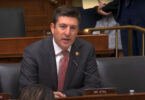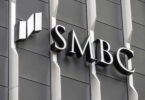On Wednesday, the US Treasury Under Secretary Nellie Liang delivered a speech on the future of money and payments, including a potential digital dollar. Ms. Liang said the Treasury would consider the option of providing access to a wholesale Central Bank Digital Currency (CBDC) to non-bank financial institutions, potentially including stablecoin issuers.
As part of the CBDC decision-making process for both retail and wholesale CBDCs, the Treasury is considering how they differ from current central bank reserves in terms of technology and access.
Regarding technology, wholesale CBDCs are likely to be tokenized instead of account-based since digital central bank money is already available today. Token-based CBDCs, which imply blockchains, facilitate on-chain payments and support features such as 24/7 payments, atomic settlement and some degree of programmability.
Regarding access, the default would be for wholesale CBDCs only to be accessible to financial institutions eligible for central bank accounts. But Ms. Liang hinted that this could include a broader range of financial intermediaries. However, she said, “that decision would be an independent choice, rather than a necessary consequence of having a wholesale CBDC.”
In her speech, Ms. Liang also noted that wholesale CBDCs could become reliable assets for backing stablecoins, where currently the reserves are mainly held in Treasuries and bank deposits. A stablecoin could put pressure on a bank and disrupt Treasury markets if it lost its peg and experienced a run. Therefore, a wholesale CBDC could be an ideal solution for reserves.
Other potential wholesale use cases mentioned included intermediating payments for tokenized bank deposits, securities settlement and cross border payment.
The talk also highlighted other important issues. For example, it confirmed the creation of an interagency working group led by the Treasury Department to advance work on CBDCs. Additionally, Ms. Liang emphasized that the Federal Reserve would consult Congress before any decision to issue a CBDC. Lastly, the Under Secretary reflected on some of the broader policy implications of a US CBDC, including how it might support its global financial leadership; contribute to strengthening privacy, security, and financial inclusion; and counter national security risks, particularly relevant given the prospects that foreign CBDCs could diminish the effectiveness of sanctions and other financial measures.






